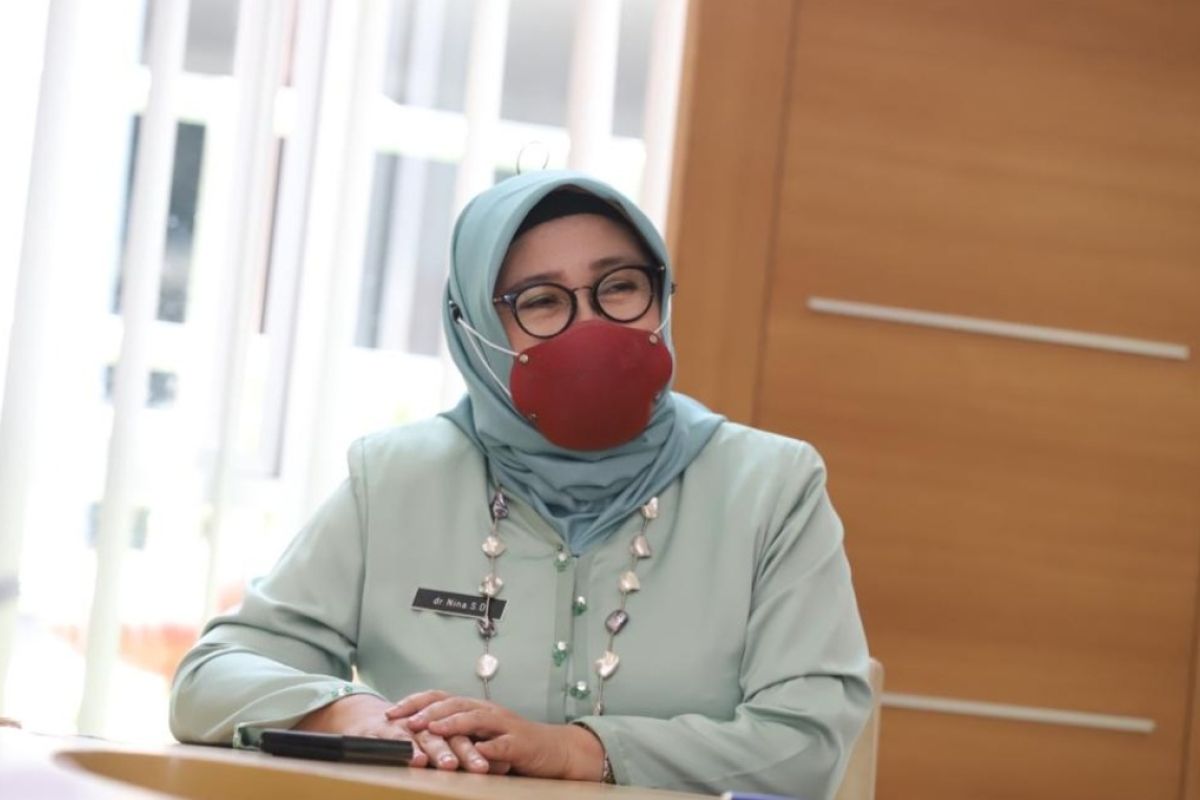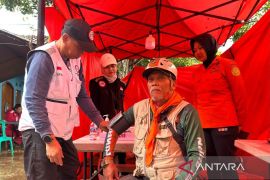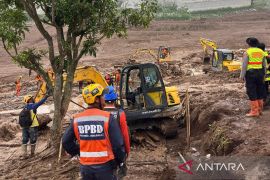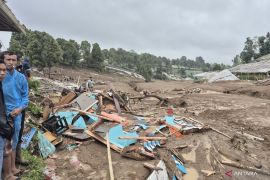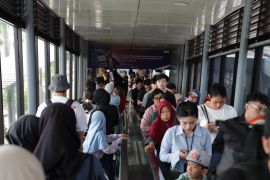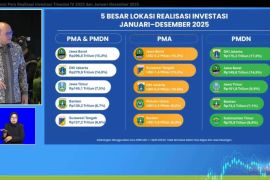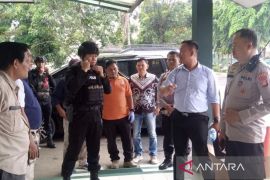The A in the “ABCDE” scheme stands for abstinence (not having sex before marriage), B for faithfulness (being faithful to partners), C for condom use (using condoms during sex), D for avoiding drugs, and E for education.
The scheme is in accordance with the Regulation of the Minister of Health Number 21 of 2013 concerning HIV and AIDS prevention, head of the West Java Health Office, R. Nina Susana Dewi, said in Bandung city recently.
Article 14 Paragraph 1 of the regulation explains that abstinence means not having sexual relations before marriage, and faithful means being faithful to one’s partner.
If the two factors are not fulfilled, then the next preventive step is using condoms consistently.
She explained that "no drugs" means avoiding drug abuse or misuse of addictive substances, and education means increasing prevention capabilities through education, including treating sexually transmitted infections (STIs) as early as possible.
Condoms as alternative
Other steps devised by the West Java government to prevent the spread of HIV/AIDS include early screening of couples who are planning to get married, pregnant women, and key populations, as well as treatment efforts such as the provision of antiretroviral drugs (ARVs) to HIV-positive patients, Dewi informed.
The HIV tests for early screening of key populations target sex workers, men who have sex with men, transgender individuals, and people who inject drugs.
The tests also target pregnant women with tuberculosis and prison inmates, and can be carried out in health facilities or through mobile services.
In addition, the government is also conducting triple elimination of mother-to-child transmission of HIV, syphilis, and hepatitis B, as well as monitoring the decentralization of ARV drugs in 27 districts and cities.
"We have made it mandatory for pregnant women in the first trimester (of pregnancy) who visit health facilities to take an HIV/AIDS test," she said.
Meanwhile, head of disease prevention and control at the West Java Health Office, Ryan Bayusantika Ristandi, said that efforts that have been carried out by the office for preventing HIV spread have included providing counseling, disseminating information, educating the community and students about HIV/AIDS, and involving religious and community leaders through social media and other media in STI prevention efforts.
According to Ristandi, the Ministry of Health has allocated 428,808 units of condoms to West Java. The provision of condoms to districts and cities is a behavioral change intervention that is aimed at preventing the spread of HIV. Thus, it seeks to encourage those who previously did not use condoms during sex to wear them for protection.
"Therefore, condoms are the advanced or last alternative if the A and B scheme cannot be done for prevention. Except in certain cases, condoms must still be used," he added.
Collaboration for HIV/AIDS handling
The West Java Health Office, assisted by the West Java HIV/AIDS Control Commission (KPA), has made efforts to prevent HIV/AIDS by taking promotive, preventive, curative, and rehabilitative actions, in accordance with the West Java Provincial Regulation Number 12 of 2012 concerning the prevention and control of HIV and AIDS.
The Health Office head said that cross-sectoral control measures through West Java KPA have also been carried out for the prevention of HIV/AIDS, in accordance with the Governor's Decree Number 443 concerning the West Java province HIV and AIDS commission.
“(The provision of) HIV/AIDS education to junior high and high school students by the West Java Education Office is one of the promotive and preventive efforts to tackle HIV/AIDS," Dewi pointed out.
Ristandi noted that according to the Health Office’s data, an additional 5,444 people tested positive for HIV in the province in 2021, and 4,165 are currently undergoing routine treatment.
In the first half of 2022 (January–June), the province recorded 3,744 additional cases, and 2,850 are undergoing routine treatment.
In 2021, the regions that recorded the most new cases were Bandung city (869), Bogor district (429), Bekasi (390), Bogor city (388), and Indramayu district (353).
Meanwhile, in the January to June 2022 period, the regions that recorded the most cases were Bandung city (410), Bogor district (365), Bekasi city (365), Indramayu district (252), and Bekasi district (217).
Ristandi said that in 2021, at least 576,155 people took the HIV test, and in the January–June 2022 period, 341,643 people took the test.
"Tests are carried out in all regions of West Java and are concentrated in Bandung city, Bandung district, Bogor city, Bogor district, Cirebon, and Garut district," he added.
In 2021, the number of new AIDS cases in West Java reached 337, and throughout the January–June 2022 period, 200 new cases of AIDS were recorded in the province.
Translator: Ajat Sudrajat, Raka Adji
Editor: Rahmad Nasution
Copyright © ANTARA 2022
